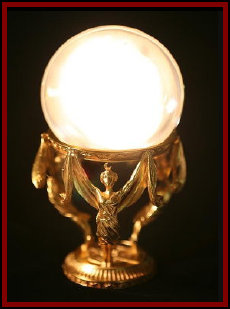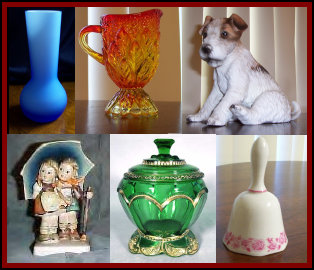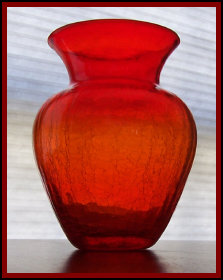












Thank you for your continued support and readership. Please insure to forward this Newsletter to your friends and neighbors. If you no longer wish to receive our emails regarding the update of this page, please send us an email to info@nova-antiques.com with the subject line "OPT OUT"
NOVA-Antiques.com does not run, manage or operate any of the flea markets, auction houses or estate sale companies advertised on this page. The NOVA-Antiques Newsletter is published for the exclusive use, enjoyment and convenience of our readers and subscribers. Any questions regarding the flea markets, auction houses and estate sale companies should be directed to the appropriate owner, promoter or manager.
© All rights reserved. Do not copy or duplicate without the expressed written permission of Northern Virginia Antiques & Collectibles.









Upcoming Antique Shows & Flea Markets
NOVA-Antiques.com provides the most comprehensive antiques show and flea market calendar
for the Mid Atlantic region.
Click here to view the most current antiques and collectibles shows calendar . . . > > >
Click here to view our flea
market directory and review pages . . . > > >
Mikey is sitting in a very expensive and exclusive restaurant in Georgetown waiting to meet with a corporate
executive whom he wanted so badly to impress, when he looked up and saw Bill Gates sitting not too far away. Eureka he says
to himself, and walks over to Mr. Gates and asks him, “Hello Mr. Gates, I wonder if you would do me a favor.” Clearly amused,
Mr. Gates says, “What can I do for you?” and Mikey explains, “I am waiting of a very important executive and I was wondering if after
he arrives if you would be so kind as to say, ‘Hi Mikey’?”




Really intrigued now, Mr. Gates agrees and Mikey trots off back to his seat to wait for his executive. After his arrival, Mr.
Gates watches as they get settled in and they order drinks. Then he walks up close to Mikey and says, “Hi Mikey!” Mikey
turns around and says, “Get lost Gates, can’t you see I’m in a meeting!”
The term whatnot has been around since the mid-16th Century and was originally used to describe small objects and
ornaments that were used to decorate the home. In the early 1800’s however, the term changed a bit as it began to be used to
describe an actual piece of furniture. This furniture, in most cases made of wood, had shelves to display and store all of thewhatnot. They could be very simple or very elaborate; free standing or shelves that were hung on a wall. It all depended
on the home that they were decorating.



Very simple whatnots were made of square or rectangular wooden planks and regular spindle legs or supports that would hold up the
shelves. The more elaborate whatnots featured graduated carved shelves with highly decorated and intricately designed legs or
supports. In either case, the whatnots were made of open shelves that offered clear view of all the display area and all of
the ornaments, tchotchkes, and knick knacks that they held. The whatnot which saw its birth in England has a French cousin,
the étagère.
The étagère was first seen in France in late 1700’s and bore a striking resemblance to its cousin the whatnot. Made
of wood, the étagère consists of graduated and usually ornately carved shelves and very elaborate spindles or legs that held the shelves
in place. They too held precious knick knacks and household decorations that were put on display for everyone to see and admire. Nowadays however, the names whatnot and étagère are synonymous to most people and many people have at least one in their home.
Regardless of whether you call it a whatnot or étagère, they can be used to store or display items. We have seen designers use
shelving units in all rooms of a house because they come in so many different variations. There are corner units and hanging
units; they are made of wood, metal or glass or a combination of any of those. They can be old and rustic, modern and painted
or natural wood or metal. Their versatility also makes them very popular; they can be used to store linens, display a vintage
cranberry glass collection or exhibit old family pictures.
Where You Might Buy Whatnot or Etagere . . .
The 24h Annual Antique Show & Sale at Historic Cold Spring Village in Cape May, New
Jersey will be held this Saturday and Sunday, August 8-9, 2009. This annual show is one of the nicest in the Mid-Atlantic region
and features old country furniture, antique Victorian furniture, primitives, vintage collectible glass and china, ephemera and vintage
toys.
Tchotchkes, Knick Knacks, Gimrack and Whatnot
Tchotchkes, knick knacks, gimrack are all whatnot that have adorned and been displayed
on whatnot shelves and étagères. Whatnot is an old term used to describe things, objects, ornaments and just plain stuff used
to decorate the home.
Tchotchkes comes from the Slavic word for toys and in modern times has come to mean trinkets and other useless items that we collect
in our lives. In sales and marketing circles tchotchkes have come to mean the items with logos from the company, such as pens,
cups, towels and other items which are given away to clients and customers. These items are also sometimes called swag and although
generally considered useful, and some people do collect them, they are usually cheap and of poor quality, which is also the meaning
of another old word, gimrack (sometimes pronounced gimcrack).
The word gimrack may come from a Middle English word and was used to describe ornamental objects of no great value and the word may
or may not be synonymous with knick knacks. Knick knacks were and are still used to decorate a home and in many cases are porcelain and
china figurines made into human forms, animals and birds. The value of knick knacks may vary so in some cases they may be tchotchkes
and gimcrack, such as the figurines that someone may buy at a dollar store. Other knick knacks cannot be considered gimcrack
because their value can be in the hundreds or thousands of dollars such as Hummel and Lladro figurines.
Recent Auction of Crystal Ball
In our July 3, 2009 Antiques Newsletter we mentioned an upcoming auction for world renowned psychic
Jeane Dixon’s property. This week we learned that her crystal ball which was expected to bring in approximately $5,000 realized
more than $11,950 at a Sloans & Kenyon’s auction. Her entire estate which included antique furniture, paintings, sculptures, memorabilia and
decorative arts brought in more than $312,349. Which makes us wonder if she saw that in her crystal ball?
Born in 1904 in Wisconsin, Mrs. Dixon is probably the most well-known astrologer and psychic in the world and influenced many people
including President Richard Nixon and former First Lady Nancy Reagan. In 1956, she predicted the assassination of the President
John F. Kennedy. That prediction is probably what she is best known for, however she made many other predictions including the
death of Bobby Kennedy and Winston Churchill’s defeat. She also made other predictions that never did come to pass such as a
World War to begin in 1958 and a U.S. civil war in 1980. Mrs. Dixon passed away in 1995.
2nd Annual Blenko Festival of Glass
On Saturday and Sunday, August 8-9, 2009, The Blenko Glass Company will host its second annualFestival of Glass. This event will feature live glass blowing demonstrations and workshops as well as sales of limited edition
pieces. The Festival of Glass will be held at the Blenko Glass Company headquarters in Milton, West Virginia. Blenko is
one of the few surviving glass companies in West Virginia and is family owned and operated.
Blenko Glass has been around since 1893, when William J. Blenko first started producing in Kokomo, Indiana. Ten years later,
in 1893, Blenko was forced to close down due to economic conditions of the time. After several attempts at a comeback, William
J. Blenko was finally successful in opening up a new plant in Milton, West Virginia. William J. Blenko produced and sold his
own glass. Blenko Art Glass is still a very popular collectible today and comes in many different patterns and styles but Blenko
is most famous for their Amberina and Crackle Glass art glass.
Amberina Glass
At the end of the 1800’s Libbey Glass Company hired Joseph Locke from the Cambridge Glass Company. In 1883, he
patented amberina glass. This Victorian Era glass is distinctive in its colors. Gold was mixed with the molten glass to
produce stunning reds and oranges that tapered into a fine amber color. Other companies, including Blenko, Fenton, Boyd and
Kanawha later received licenses from Libbey to produce amberina art glass pieces.
